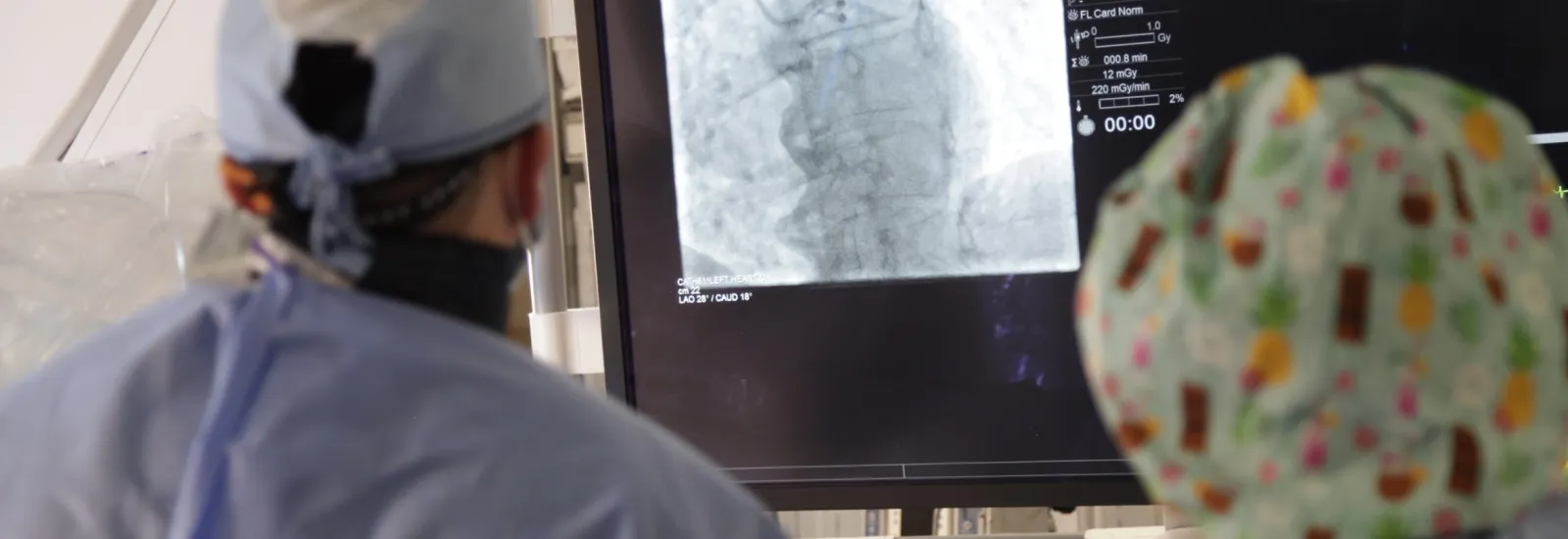
Reid’s Heart & Vascular team reaches milestone for TAVR procedures to treat aortic stenosis
June 13, 2023 -- Reid Health's
Heart & Vascular team recently celebrated completion of its 50th
transcatheter aortic valve replacement (TAVR) procedure, a treatment that can
add years of life to those living with aortic stenosis.
Aortic stenosis is a narrowing of
the aortic valve in the heart. There can be several causes, including a
build-up of calcium on the leaflets of the valve as a person ages, rheumatic
fever, or some congenital heart conditions.
The narrowing makes the heart work
harder to supply the rest of the body with blood and oxygen, leading to
symptoms such as:
- Chest pain
- Shortness of breath or trouble breathing
- Feeling dizzy, light-headed, or fainting
- Swollen ankles or feet
- Fatigue
- A decline in activity level because of a reduced ability to walk, stand, or sleep
"Many patients dismiss
these symptoms as 'just getting older,'" said Lindsey Hobson, NP, Valve Clinic
Coordinator for Reid Health. "Often their symptoms are greatly improved with
the replacement of their aortic valve."
Severe aortic stenosis affects about 3 in
100 people over the age of 75. Without replacing the valve, life expectancy is usually
50% at two years as the risk of heart failure increases and quality of life
goes down.
"We're proud of our program here at Reid. Since we started it, we've had excellent results and it continues to grow. I'm so glad this program is available here because it has allowed many people who might not have been candidates for an open-heart procedure to enjoy the benefits and significantly improved quality of life of having their valve replaced." -- Reid Health Cardiothoracic Surgeon Mohey Saleh, MD
Reid's first
TAVR procedure was performed in December 2020. Patients are placed under
general anesthesia, and a long, thin tube called a catheter is guided through
the groin into the femoral artery, taking the new valve to the heart and
setting it in place.
"The 50th
procedure was a landmark set by our TAVR Steering Committee before our first implant,"
said Tyler Evans, Reid's Cardiovascular Service Line Director. "It signifies
the growth and dedication of our team over the past three years as we build the
program and continue to make a significant impact on our patients' lives."
The procedure
is minimally invasive, reducing the risks for infection and complications and
increasing recovery time compared to open-heart surgery. Reid's Heart &
Vascular team has had a 98% success rate with TAVR.
"We're proud of
our program here at Reid. Since we started it, we've had excellent results and it
continues to grow," said Reid Health Cardiothoracic Surgeon Mohey Saleh, MD.
"I'm so glad
this program is available here because it has allowed many people who might not
have been candidates for an open-heart procedure to enjoy the benefits and
significantly improved quality of life of having their valve replaced."

